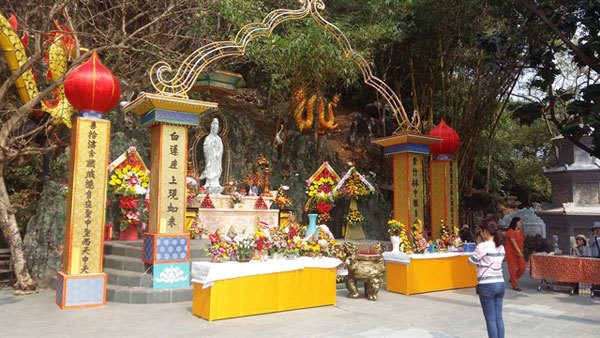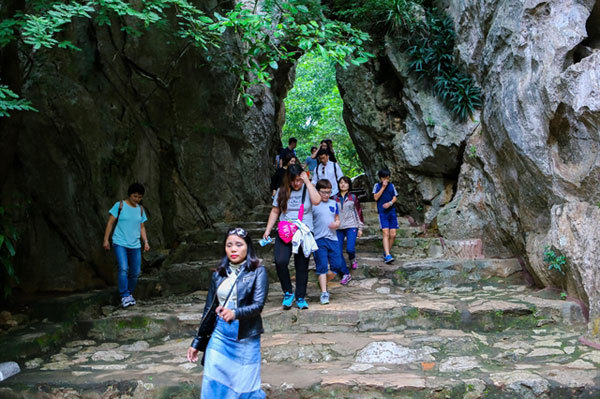 |
|
A visitor prays at a pagoda in Ngu Hanh Son (Marble Mountains) in Da Nang. The annual Quan The Am (Avalokitesvara Bodhisattva) Festival was regconised as the National Intangible Heritage by the ministry of Culture, Sports and Tourism. |
The city’s Sports and Culture department said the main festival, which falls on the 19th day of the second lunar month, features the procession of an image of Avalokitesvara Bodhisattva, and a prayer for a year of peace, prosperity and happiness for the nation, drawing at least 10,000 attendees.
The festival is often held at the Quan The Am Pagoda at the foot of the Kim Son Mountain – the largest of the Ngu Hanh Son (Marble Mountains) in Da Nang.
The stone sculptures art of the 400-year-old Non Nuoc stone village in the Marble Mountains was also recognised as National Intangible Heritage in 2014.
The Marble Mountains landscape site was named a National Special Relic in 2018.
 |
|
Tourists visit the Marble Mountains — where host the annual the annual Quan The Am (Avalokitesvara Bodhisattva) Festival — in Da Nang’s Ngu Hanh Son District. |
Da Nang has six National Intangible Heritages including Tuong Xu Quang (Quang Nam’s classic drama), the Le hoi Cau Ngu (Whale Worshipping festival), the traditional fish sauce trade of Nam O Village, the Non Nuoc stone sculptures art, the art of Bai Choi (a half-game and half-theatre performance) and Quan The Am Festival.
The Quan The Am Festival has featured art troupes from Japan, Myanmar, Thailand and India, the Thai Sangha delegation, Buddhism lecture and meditation sessions, and folk performances. VNS



